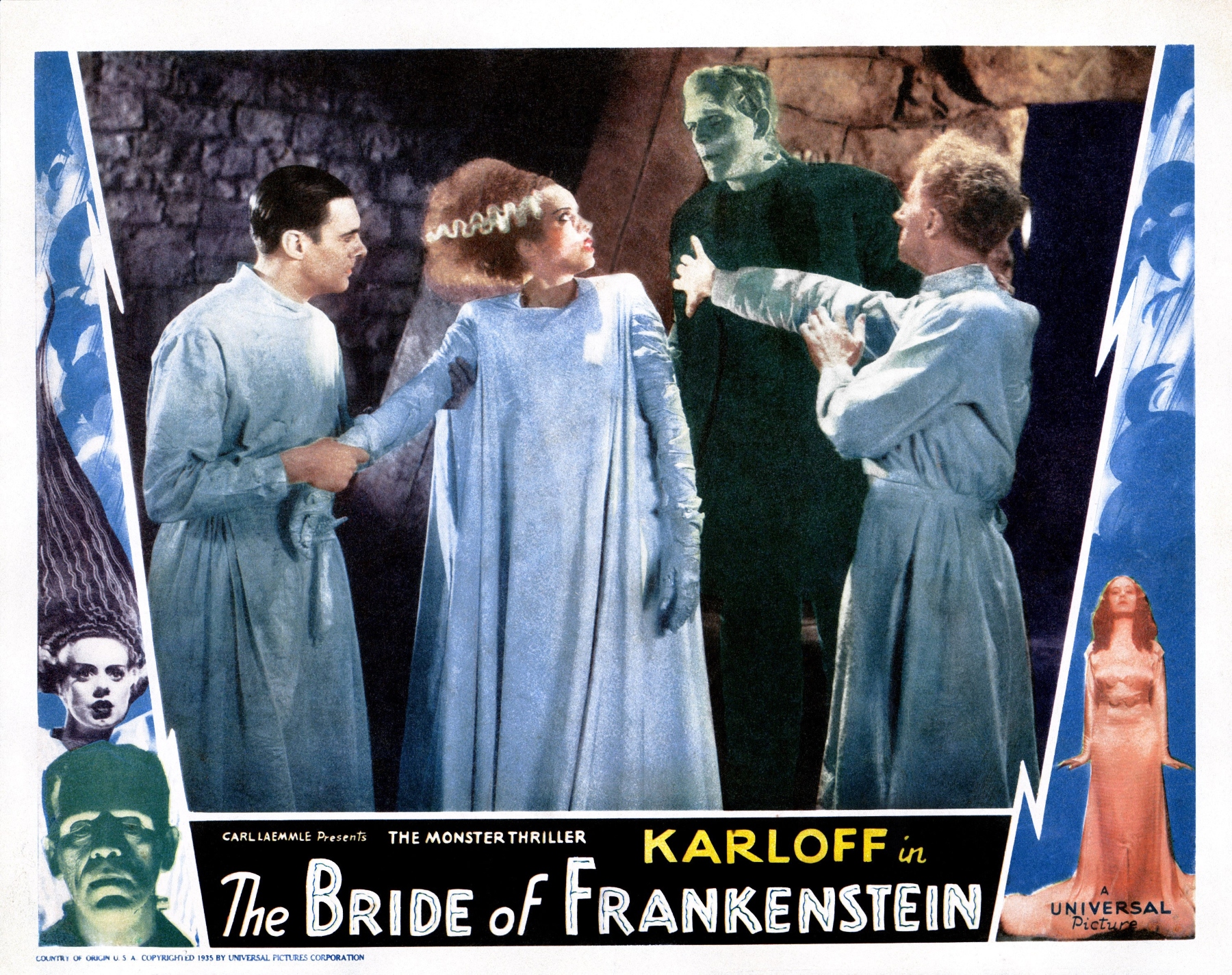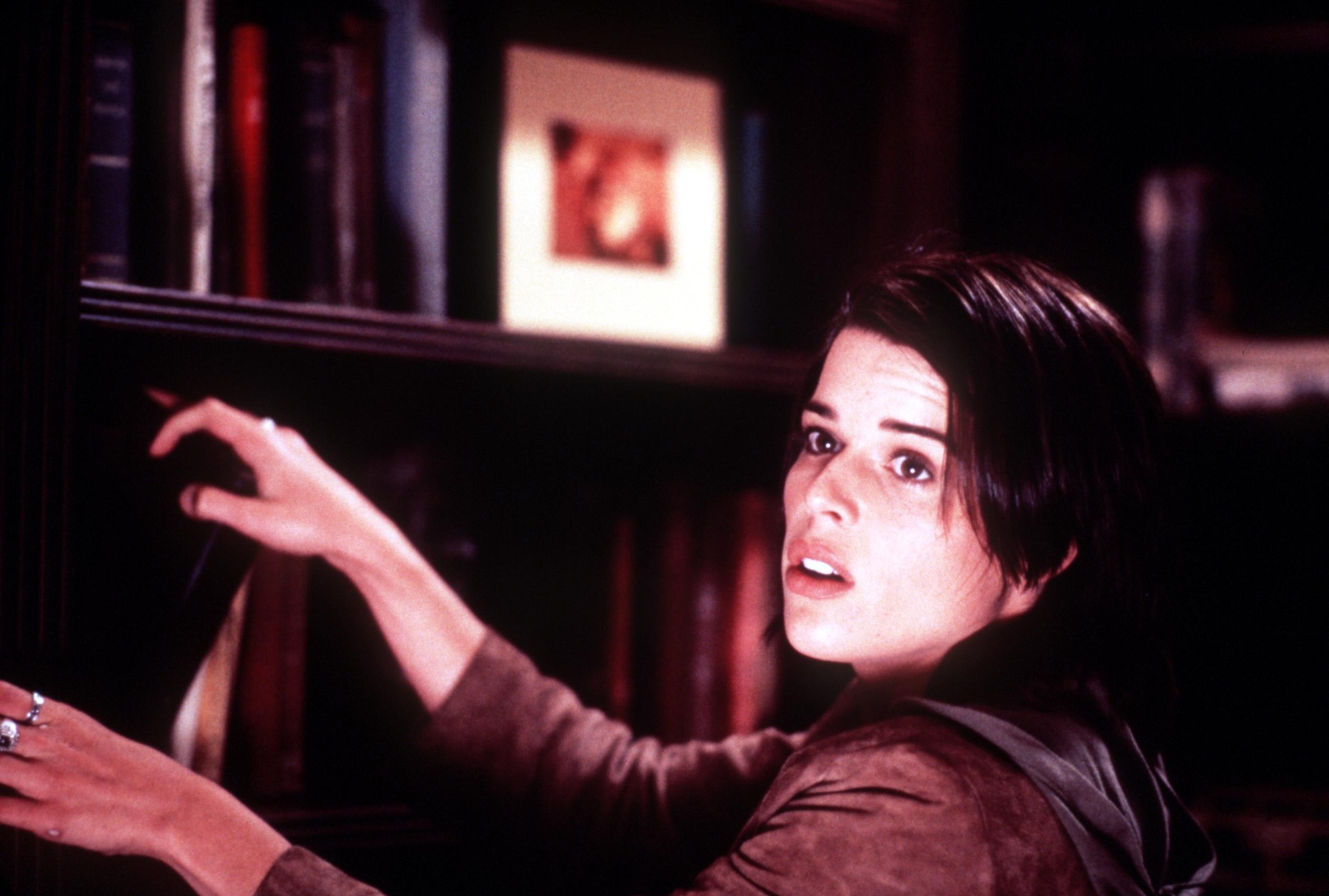From “Nosferatu” to Alfred Hitchcock’s “The Birds,” queerness has been linked with horror, and horror films and TV shows have provided a refuge for queer creators, a place to explore often dark or daring stories. The “Creature from the Black Lagoon” who just wants love. The teen girls of “Ginger Snaps” who have to deny their cravings and pretend to be like everyone else, despite the raging inside them.
“Queer for Fear,” a new four-part documentary series on Shudder, attempts to pay more than a little attention to the people behind the curtain, and to the stories that blazed across our screens. Touching upon horror and thriller from black and white classics to the contemporary, and with a slew of big-name interviewees from filmmakers like Kimberly Peirce to drag icons to cast members on “Yellowjackets,” the Bryan Fuller-executive produced docuseries is prime curling up by the fireside material.
With its packed episodes, “Queer for Fear” is like a college class, but the best college class you could never get into because it would be full every semester. As fellow executive producer Steak House says, “Everyone learned stuff. Even the biggest horror fans on the show learned.”
Salon talked to Steak House about the series, why queerness has been associated with horror stories for so long and what’s really scary.
This interview has been lightly edited for clarity and condensed.
Were you a horror fan before this series?
As a teen I loved horror. And when the “Scream” series came out and the “Chucky” series came out, I recognized something’s different here. Why are these queer, but they’re not queer – but they are queer? I don’t know what’s going on. It was fun to explore it. Bryan [Fuller] is obviously a huge horror horror fan. For me, it was more exploration.
I never made this connection, but horror does remind me of being a teen. Because there is so much teen horror. So much horror happens at adolescence! I think it brings me back when I see it.
I think as a teen, your body is betraying you. And if you’re queer, you have an extra betrayal. We’re like, wait a second, I’m not like the others. How do I fit in? And I think, horror, for as much as it’s scary, it also has a lot of survival narratives and ways that we can see ourselves, if society’s calling us a monster. We’re able to see ourselves in horror movies, too.
I like the idea of survival narratives. It’s almost like a blueprint for a way to be or tactics to use, if it comes to it. This is kind of a big question but why does horror resonate so much with the queer community? With aspects of queer identities?
“We’re told that we are outside. We’re told that we’re not okay as we’re growing up and we’ve got to find our way to survive.”
For me, I think it’s because we’re told that we don’t belong. We’re told that we are outside. We’re told that we’re not OK as we’re growing up and we’ve got to find our way to survive, just as the characters in a horror movie do, especially a Final Girl, someone like Sydney. No matter what, she’s got to find a way to survive. And I think that’s the same for us as we’re growing up. Hopefully, it gets better over time and you find people that appreciate you and realize that we’re not total freaks and weirdos, even though we are total freaks and weirdos.
 “Bride Of Frankenstein” lobbycard with (left to right) Colin Clive, Elsa Lanchester, Boris Karloff, Ernest Thesiger, 1935 (LMPC via Getty Images)I’m a horror fan, but I learned a lot from the series. For some reason, I had never seen “The Howling.” The documentary made me realize I have to watch it, and I have to go back to “Body Snatchers” films. Were there films that you realize you have to go back to? Or, you have to watch now because of this series?
“Bride Of Frankenstein” lobbycard with (left to right) Colin Clive, Elsa Lanchester, Boris Karloff, Ernest Thesiger, 1935 (LMPC via Getty Images)I’m a horror fan, but I learned a lot from the series. For some reason, I had never seen “The Howling.” The documentary made me realize I have to watch it, and I have to go back to “Body Snatchers” films. Were there films that you realize you have to go back to? Or, you have to watch now because of this series?
The classics. I went back and watched “Frankenstein” and “Bride of Frankenstein” and all the earlier classics. Bryan’s been talking a lot about robots and A.I., how they can also be queer. I have a friend, Harry Dodge, who wrote a book called “My Meteorite,” and he was talking a lot about it. So I thought, Oh, I’m gonna check into this.
The spaceman parts of the series. The part about aliens – that surprised me.
Yeah, there’s aliens. The robots, we didn’t really get into in this series, but I think it would be a fun rabbit hole to go down once the series is over.
Maybe that’s the next series, queer A.I.. One of the other things I love about this is the different interviewees that you have here: writers and directors, cultural critics, drag queens and actors. Was there an interviewee that you were especially excited to hear from?
For me, Sid Krofft was really exciting and fun to get because I grew up watching all those shows, “H.R. Pufnstuf,” “Sigmund and the Sea Monsters.” We actually went to his house and filmed him differently than all the other interviewees, which we did on stage. And so it was kind of one of those, oh, we’re getting to talk to someone that I looked up to my whole childhood.
That gets into something I wanted to talk about which is the aesthetics of the series, the feel of it. Most of the interviewees are in a red chair with a black background. And when there’s archival footage or news reports, it’s in a little antique TV.
Bryan was like, I’ve got this great red chair that my partner designed. Let’s use it on the stage because I think this will be a really clean way to go from the interviewees to the movies. We wanted to make sure that our background was simple enough, but still representative of horror, so that you weren’t taken out of the movies by it. We didn’t want the interviews to be something that overshadowed the stories. At some point, we decided to rent a bunch of vintage TVs and do a shoot. Then in Episode 3, we ended up using a projector screen because it kind of felt like the 1950s, especially with the McCarthy stuff, like men in back rooms smoking, a projector. We felt that represented that era the best and we just wanted a way to distinguish the archival footage.
It has an old Hollywood glamorous feel, the way it’s designed. And also the music lends to the cohesiveness as well.
ShyBoy and Mark Nubar are amazing. They composed the entire score, as well as used some songs on their albums for additional songs.
I never watch the whole end credits, but I kept watching the credits of this series because of the music.
For the credits, we’ve been picking a different song of theirs for each episode that fits with the episode best.
This series spends a lot of time not just with queer movies, but with queer creators. I’m embarrassed to say I didn’t know that Mary Shelley was bisexual but also the story of Anthony Perkins, who played Norman Bates and his life as a closested gay man and his career suffered because of it – that was incredibly compelling and moving. Were there any stories here that surprised you?
I knew theoretically about Mary Shelley and Bram Stoker – but I didn’t. I had never read the letters. That was something fun to read and explore and find interesting ways to talk about them. We did an animation with the Bram Stoker letters, and had Alaska reading Mary Shelley’s letters. Just trying to put a few pieces of narrative into documentary too.
“Something really important to us is to have a piece that speaks to people who have no community, speaks to people who are alone with their queerness and need support.”
And I learned so much, I don’t even know if I can cover it all. It feels like it just keeps coming. Every interviewee that you talk to opens another little door. The thing with documentary is that you could go 1,000 ways, so the struggle for us has been to keep it within four episodes, telling as much of the story as we can. We found that we went into topics, and the topics exploded, and then the episode would get bigger and bigger and bigger. We would shave it down to be manageable. I think that there is so much more to cover, and I hope we get another chance to cover the rest of it.
I think the desire is to make something that educates without feeling educational. And something that can resonate with everybody, whether you’re queer or not, and you walk away learning something while still being entertained. Something really important to us too is to have a piece that speaks to people who have no community, speaks to people who are alone with their queerness and need support and need community, but are in an area where they’re unable to find it. Hopefully, this touches them and gives them hope that there are other people out here and that they can be OK. And they are normal. You think if you’d had the show when you were a kid, that would have been amazing.
It shows a sort of historical overview of: this is how people have gotten by, have been creative and found themselves in art, and the show provides a roadmap through history in that way.
I think it was also important for us to mention the history stuff without going on a deep dive just to say: hey, you haven’t treated us that great. This has been a historical problem. And let’s move forward and try to change that. Hopefully that’s the other thing that the series can do: activate the rebel, make people want to push back and fight against all the homophobia that persists.
 Mads Mikkelsen in “Hannibal” (NBC/Brooke Palmer)
Mads Mikkelsen in “Hannibal” (NBC/Brooke Palmer)
As the producer of a horror series, what scares you? Do you get scared by horror films?
When I first joined the project, I was watching “Hannibal,” Bryan’s series, and I was actually too scared to walk my dog on the street after watching. In the daytime!
For me, I like a little camp and fun with my horror. I don’t like horror that’s too real. Because it just gives me nightmares. I don’t like if it feels like this could actually happen to you. I would classify John Waters as horror – he started terrorizing straight people years ago. What really shaped me was watching all those films in my 20s, watching “Rocky Horror Picture Show,” that kind of stuff.
Want a daily wrap-up of all the news and commentary Salon has to offer? Subscribe to our morning newsletter, Crash Course.
Do you know what’s next for you? Are there any new projects you can talk about?
I’m attached to a couple projects, but they’re not off the ground yet. So I’ve got to wait. To be honest, I need to go take a two-month break. It’s been two years. There’s just been so much material to cover, so many movies, so many different angles. We have been on quite an adventure.
Read more
about queer horror

